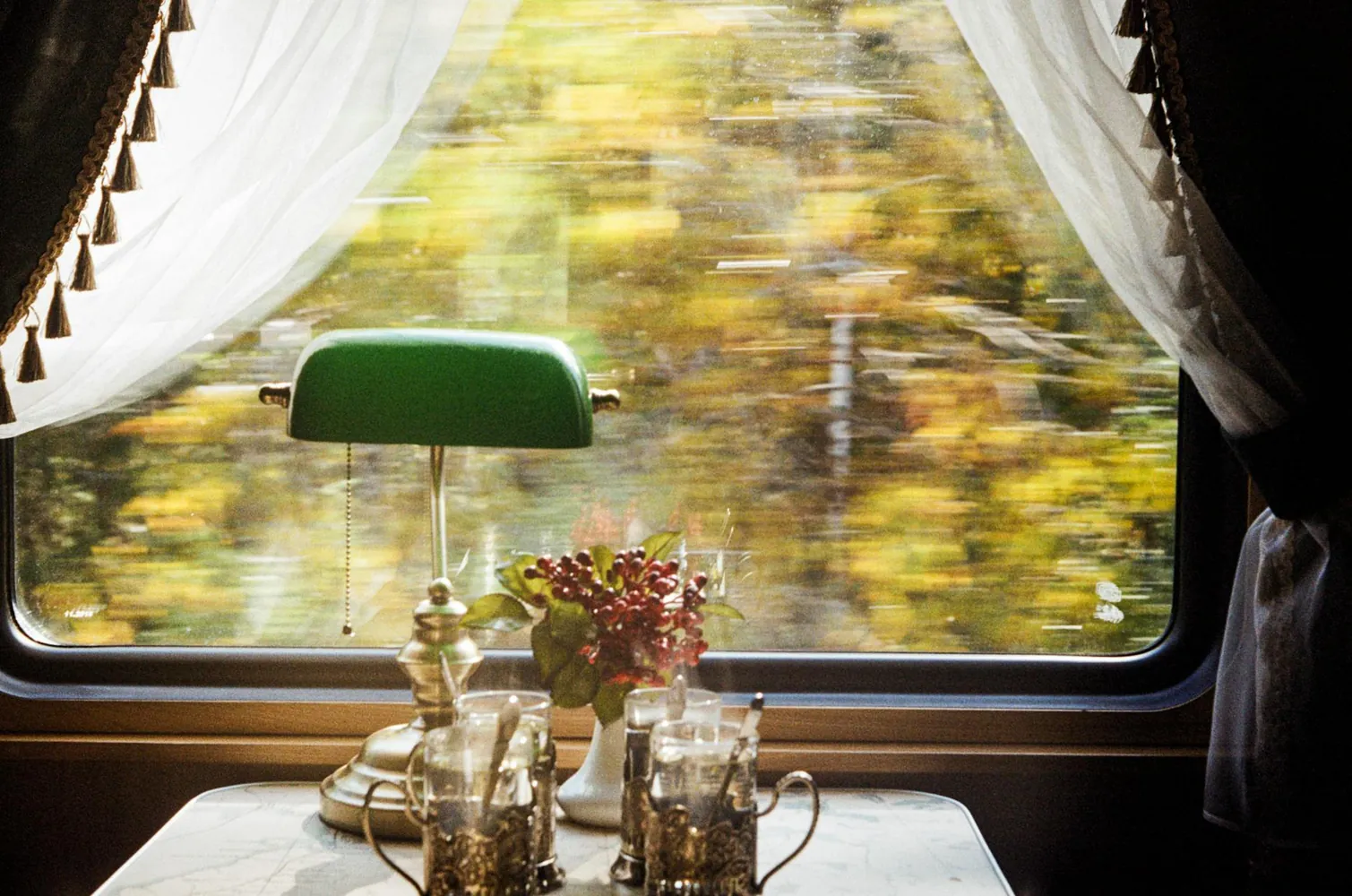Evaluating Luxury Train Experiences Against Budget-Conscious Travel Choices

The Allure of Luxury Train Journeys
Imagine gliding through the picturesque landscapes of the Scottish Highlands aboard the Belmond Royal Scotsman, sipping on a glass of vintage champagne as you recline in your plush cabin. This is the epitome of luxury train travel—a world where every detail is meticulously curated for comfort and opulence. Luxury train journeys offer a unique blend of elegance, gourmet dining, and breathtaking views, turning travel itself into an unforgettable experience.

Exclusivity and Comfort
Luxury trains like the Venice Simplon-Orient-Express or the Maharajas' Express are synonymous with exclusivity. They provide lavish accommodations that often rival five-star hotels, complete with en-suite bathrooms, climate control, and personalized service. The experience often includes multi-course meals crafted by top chefs, served in opulent dining cars adorned with rich woodwork and fine linens.
One prime example is the Rovos Rail in South Africa, which offers journeys across the continent in reconditioned classic train cars. Passengers enjoy 24-hour room service, spacious suites with Edwardian-style furnishings, and off-train excursions such as game drives in South Africa's renowned parks.
The Unique Experiences Offered
Beyond comfort, luxury trains provide access to remote destinations and unique cultural experiences. The Eastern & Oriental Express travels through Malaysia and Thailand, offering guests the chance to explore ancient temples and bustling markets during off-board excursions. These journeys are often packaged with bespoke experiences that reflect the culture and history of the regions traversed.
The Practicality of Budget Backpacking
In contrast, budget-conscious travel focuses on maximizing value while minimizing costs. Backpacking allows travelers to explore destinations without breaking the bank, often relying on hostels, public transportation, and local eateries to stretch their funds.
Flexibility and Independence
Backpacking offers unparalleled flexibility. Travelers can change their itineraries at a moment's notice, linger in places they love, or leave those that do not meet expectations. For instance, backpackers in Southeast Asia may start in Thailand before deciding on a whim to explore Cambodia or Vietnam based on recommendations from fellow travelers.
This approach encourages independence and spontaneity. Consider solo backpackers navigating the vibrant streets of Buenos Aires or exploring the natural beauty of Patagonia with nothing more than a guidebook and a bus ticket. The freedom to design one's own journey is a significant draw for many.
Cultural Immersion
By traveling on a budget, backpackers often engage more deeply with local cultures. Staying in hostels or guesthouses facilitates interaction with locals and other travelers alike, fostering cultural exchange. For example, in India, budget travelers might choose to stay in family-run guesthouses or volunteer with community projects, providing a more authentic experience than luxury hotels could offer.
Moreover, using public transport like trains and buses instead of private transfers can lead to unexpected discoveries and encounters that enrich the travel experience.
Comparing Costs: A Detailed Breakdown
While luxury train travel might seem worlds apart from budget backpacking, both have their place depending on the traveler's goals and preferences. Let's compare costs associated with each mode of travel.
Luxury Train Pricing
A journey aboard a luxury train can range from $2,000 to upwards of $10,000 per person for a multi-day trip. This price typically includes accommodation, meals, drinks, and some excursions. However, additional costs may be incurred for premium excursions or special amenities.
- Example: A four-night journey on the Venice Simplon-Orient-Express from Paris to Istanbul can cost over $8,000 per person.
Backpacking Costs
Conversely, backpacking budgets vary widely but can be as low as $30 to $50 per day in some regions like Southeast Asia or South America. Costs include accommodation in hostels ($10-$20 per night), meals at local eateries ($5-$10 per day), and public transportation.
- Example: A month-long backpacking trip through Thailand can cost under $1,500 inclusive of accommodation, food, local transportation, and activities like visiting temples or trekking.
Deciding Between Opulence and Affordability
The choice between luxury train travel and budget backpacking ultimately depends on personal preferences and travel goals. Here are some factors to consider:
Purpose of Travel
If relaxation and indulgence are paramount, a luxury train journey may be ideal. For those seeking adventure and cultural immersion, backpacking offers experiences that money can't buy.
Time Versus Money
Travelers with limited time who wish to experience multiple destinations comfortably might prefer luxury trains. In contrast, those with more time but limited funds might find greater satisfaction in budget travel.
Social Interaction
Luxury trains often cater to couples or small groups seeking privacy and seclusion. Backpacking appeals to solo travelers or those eager to meet new people along the way.
Practical Tips for Each Travel Style
For Luxury Train Travelers
- Plan Ahead: Book well in advance as luxury train journeys are limited and sell out quickly.
- Pack Smart: Opt for formal attire for dining cars; however, comfortable clothing is essential for day excursions.
For Budget Backpackers
- Packing Essentials: Invest in a quality backpack, comfortable footwear, and a quick-dry towel. Packing light is key to mobility.
- Stay Connected: Use apps like Hostelworld for accommodation or Rome2Rio for transportation planning.
The Final Verdict
No one-size-fits-all answer exists when it comes to choosing between luxury train journeys and budget-conscious backpacking. Each offers unique advantages that cater to different desires and priorities. Whether you dream of traversing expansive landscapes in opulence or discovering hidden gems through independent exploration, the choice is yours to make—and there is no wrong one.
 Modern Knowledge House
Modern Knowledge House